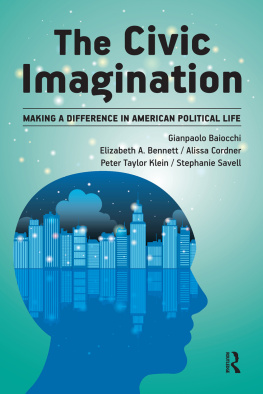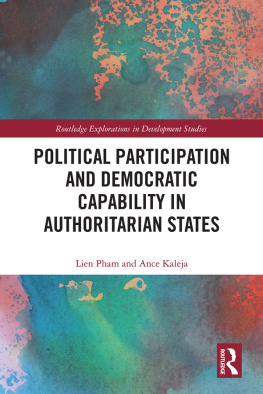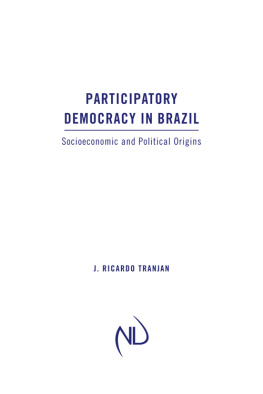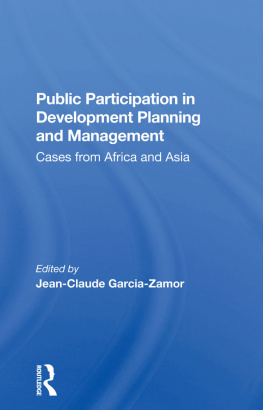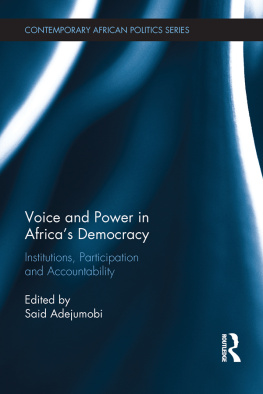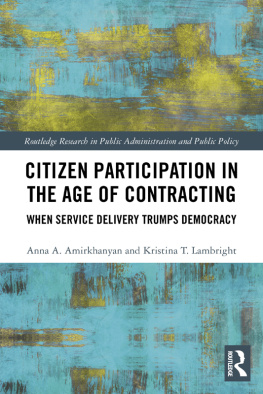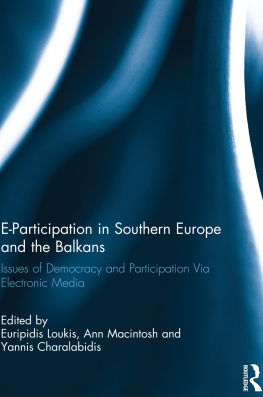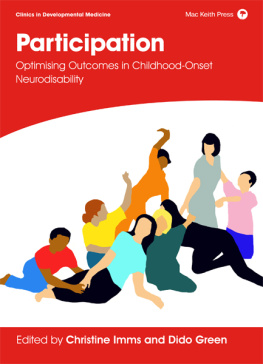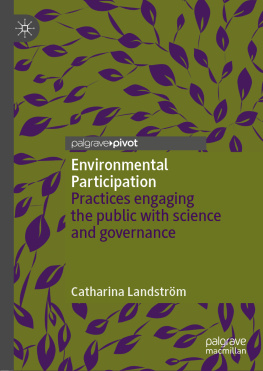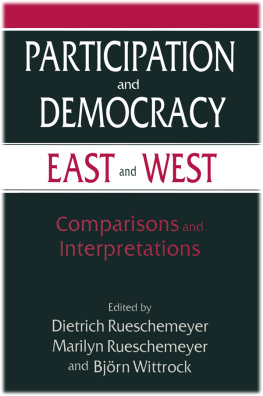Stanford University Press
Stanford, California
2017 by the Board of Trustees of the Leland Stanford Junior University. All rights reserved.
No part of this book may be reproduced or transmitted in any form or by any means, electronic or mechanical, including photocopying and recording, or in any information storage or retrieval system without the prior written permission of Stanford University Press.
Printed in the United States of America on acid-free, archival-quality paper
Library of Congress Cataloging-in-Publication Data
Names: Baiocchi, Gianpaolo, 1971 author. | Ganuza, Ernesto, author.
Title: Popular democracy : the paradox of participation / Gianpaolo Baiocchi and Ernesto Ganuza.
Description: Stanford, California : Stanford University Press, [2017] | Includes bibliographical references and index.
Identifiers: LCCN 2016036585 (print) | LCCN 2016037207 (ebook) | ISBN 9780804790611 (cloth : alk. paper) | ISBN 9781503600768 (pbk. : alk. paper) | ISBN 9781503600775 (ebook)
Subjects: LCSH: Political participation. | Democracy. | Municipal budgetsCitizen participation. | Municipal governmentCitizen participation.
Classification: LCC JF799.B34 2017 (print) | LCC JF799 (ebook) | DDC 321.8dc23
LC record available at https://lccn.loc.gov/2016036585
Typeset by Classic Typography in 10.75/16 Adobe Garamond Pro
POPULAR DEMOCRACY
The Paradox of Participation
GIANPAOLO BAIOCCHI and ERNESTO GANUZA
Stanford University Press
Stanford, California
Contents
Acknowledgments
It is hard in a book like this, written about processes still unfolding, not to be taken in by current events. As we finish the book, political scenarios in Spain, the United States, and Brazil seem by turns dramatic, exciting, and uncertain. In Spain of course, Podemos, the new political-party-cum-movement, has in three years dramatically reshaped the political scenario after four decades of a staid, two-party deadlock that has been in place since the end of the Franco era. Whatever its electoral future or eventual policies, it will be impossible to speak of Spain without reference to this revolution against representation after the indignados movement in 2011. In the United States, Black Lives Matter has burst on to the scene, promising for some what appears to be the dawn of a new civil rights era. At the same time, right-wing vitriol and its angry electorate seem at a fever pitch in the country. And in Brazil, for many, the promises of participatory democracy, embodied by the perhaps crumbling Workers Party, seem now in need of much greater scrutiny. The phrase participation fatigue seems to be more in the mouths of activists, scholars, and even international agencies today than even a few years ago.
We have been unable to follow the advice we routinely repeat to our students: pick an ending date for the research and stick to it. If you must, we usually advise, save more current happenings for an afterword. Instead, such events form a living backdrop to this book. It is our sincere hope that our dialogue with this context (and our acknowledgment of it) will help round out the historical arc we trace here, and rather than give the book a shortened shelf-life, make it more relevant to discussions we intend to interfere in. The book is also intensely personal and a reflection of our own trajectories in the worlds we describe. Though we have never thought of ourselves primarily as experts of participatory budgeting, we have both been involved with PB, in one way or another, for a decade and a half each. Between us, from our different vantage points, we have seen this world develop and radically change. While a reader might be forgiven for thinking this book is written from a disenchanted point of view, we try to leverage our stance for critical and productive purposes. Our disenchantment actually masks a deeper enchantment, not with participatory budgeting but with the utopia of legislating the world to come.
We have accumulated friendships and debts in activist, practitioner, and scholarly worlds. We cannot hope to name them all, but some deserve special mention. Nicole Summers, who first worked on this project at Brown University, was a coauthor of and generously agreed to including it in this book.
Brown University and the Watson Institute provided Gianpaolo an occasionally frustrating but exceedingly generative environment, in the form of very generously reduced teaching loads, ample research funds, and a lively intellectual community, to support his research and scholarship. The semester Ernesto spent there developing the ideas in this book was central to its genesis. Brown University summer research fellowships funded the excellent work of Donata Secondo and Nicole Summers for background research. The IGERT program at Brown also funded background research by Joshua Eubank. NYU and the Gallatin School, where the book was concluded, have provided a supportive and stimulating environment. NYU Global Initiatives provided Ernesto a productive visiting stint, while the NYU Gallatin Research Fellowship funded Grace Chen in research assistance. Humanities Initiative at NYU also provided crucial translating funds for the final stage of the book, and some of the very important work of Nina Griecci in editing the English.
IESA in Crdoba continues to provide Ernesto a vibrant intellectual home, and the generous semester IESA supported Gianpaolo as a visiting scholar was also key to the development of this book. The Spanish Ministry of Economics offered a valuable grant (CSO2012-38942) to Ernesto to finish his own research.
Perhaps one of the single greatest debts we owe is to Kate Wahl, our indefatigable and unbelievably patient editor at Stanford University Press.
This book has emerged and evolved in conversation. While we cannot say if they would agree or disagree with the approach and findings of this book, the following colleagues and friends provided very important feedback on the manuscript, parts of it, the arguments, or even some of the ideas. Whether their feedback was of the supportive or the stimulating counterpoint variety, we are extremely thankful to Erik O. Wright, Michael Kennedy, David Kennedy, Patrick Heller, Nitsan Chorev, Cornel Ban, Keith Brown, Rich Snyder, Barbara Stallings, Peter Evans, Ananya Roy, Michael Burawoy, Gay Seidman, Richard Sennett, Gil Eyal, Iddo Tavory, Colin Jerolmack, Harvey Moltoch, Neil Gross, Francesca Polletta, Nina Eliasoph, Craig Calhoun, Claudio Benzecry, Ana Claudia Teixeira, Osmany Porto, Adrian Gurza Lavalle, Sonia Alvarez, Jeff Rubin, Millie Thayer, Agustin Lao Montes, Javier Auyero, Brian Wampler, Joan Font, Donatella Della Porta, Yves Sintomer, Caroline Lee, Ed Walker, Michael McQuarrie, Robert Fishman, Heloise Nez, Francisco Francs, Giovani Allegretti, Josh Lerner, Mike Menser, Ginny Browne, Rachel LaForest, Pam Jennings, Isaac Jabola-Carolous, Madeleine Pepe, and Marcelo K. Silva. We also owe a special gratitude to the next generation of scholars with whom we have debated these ideas: Diana Graizbord, Michael Rodriguez, Elizabeth Bennett, Alissa Cordner, Peter Klein, Stephanie Savell, Patricia Garcia-Espin, Hillary Angelo, Daniel Aldana Cohen, Michelle Esther OBrien, Brian Connor, Sinem Adar, and Sam Dinger.
Finally, our greatest debt is always personal.
Writing a book is always a struggle. This was a special one, as it was written by four hands across continents, time zones, and shifting professional commitments. It would have been literally impossible to finish the book without the presence of Hedwig Marzolf and Paula Chakravartty: their generosity and love are core pieces of the book. Their patience and wisdom were indispensable in our quest for coherence and the successful completion of the manuscript. Maybe they have heard a lot about participation, but weve learned a lot about love and patience.
Next page

